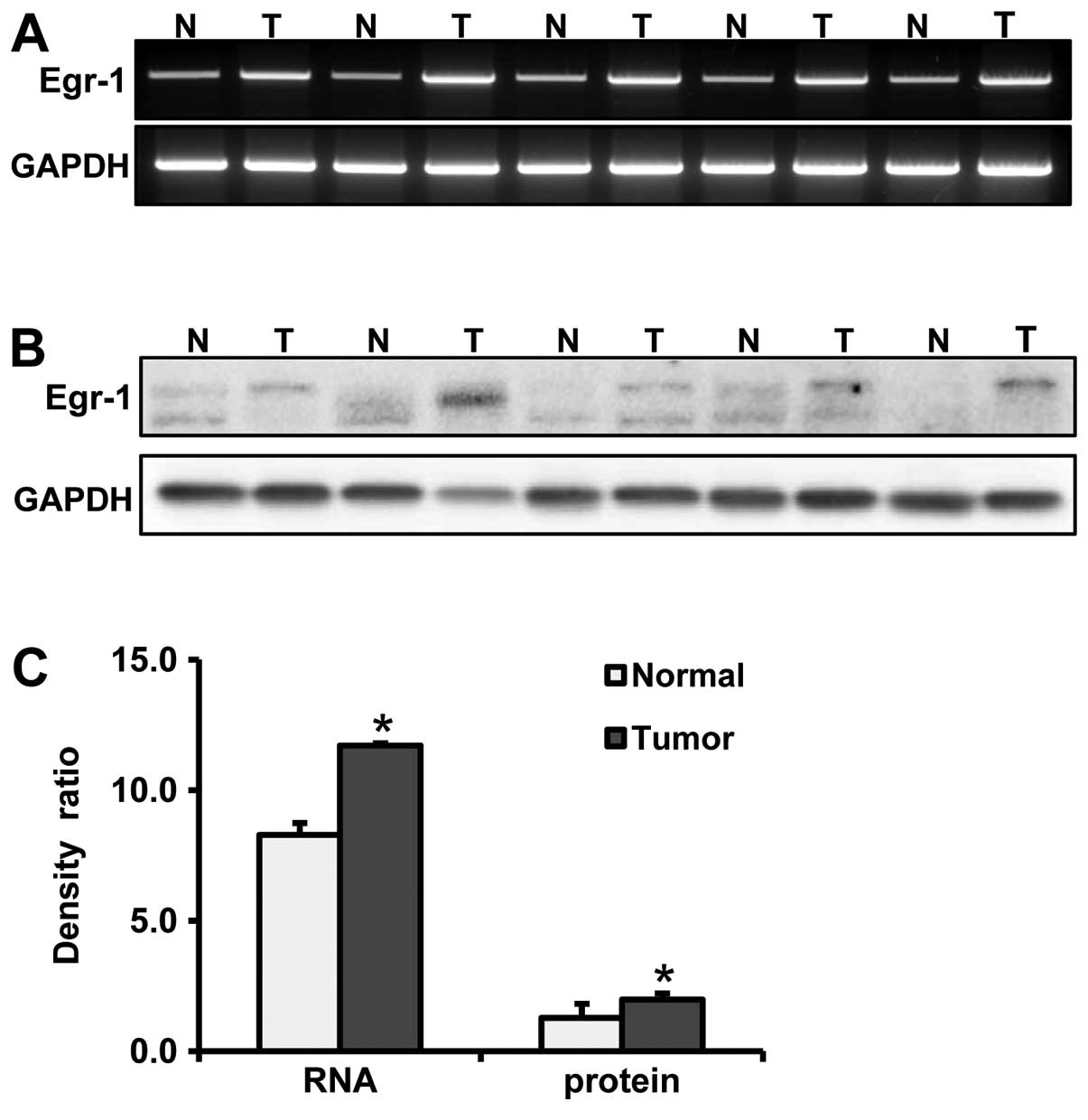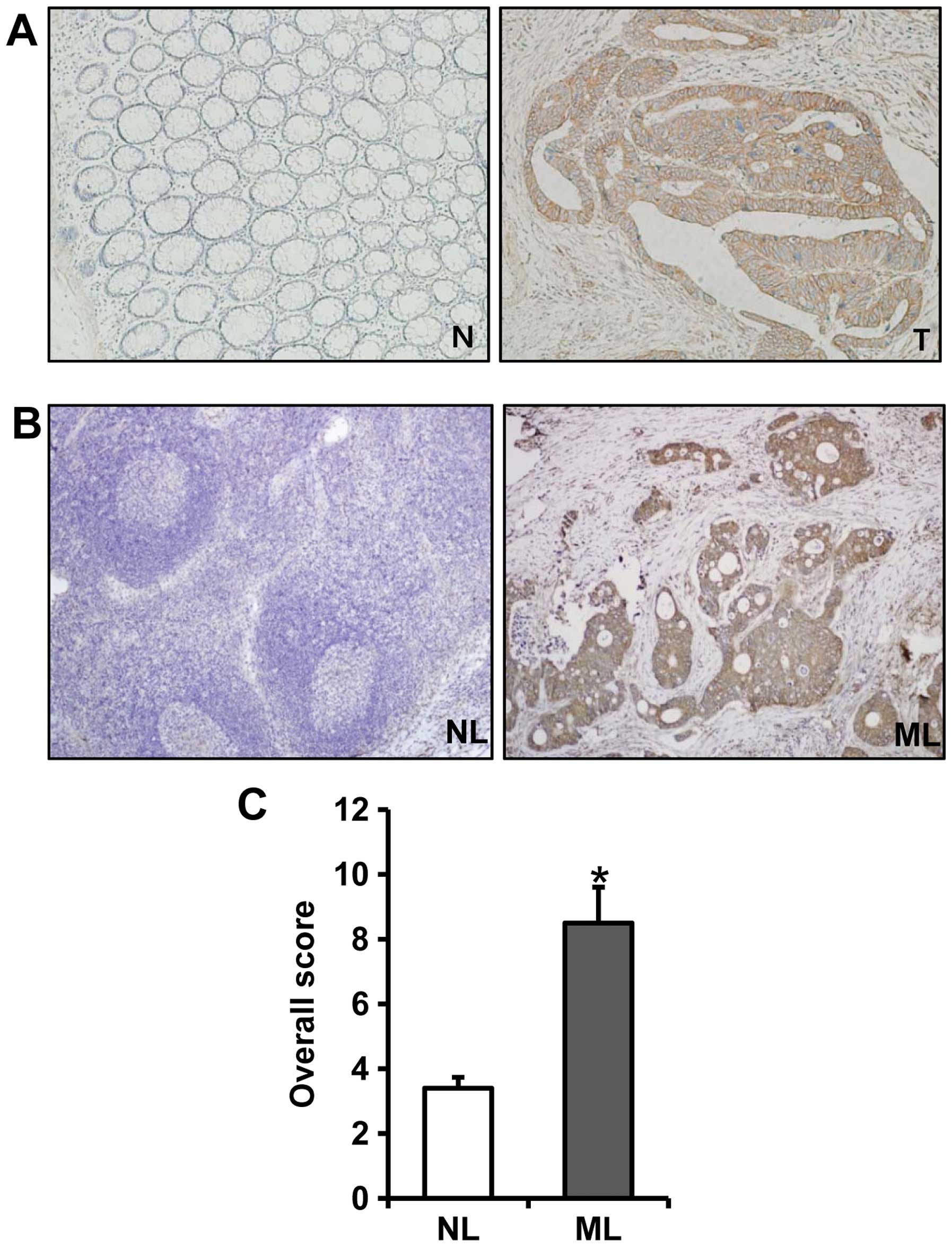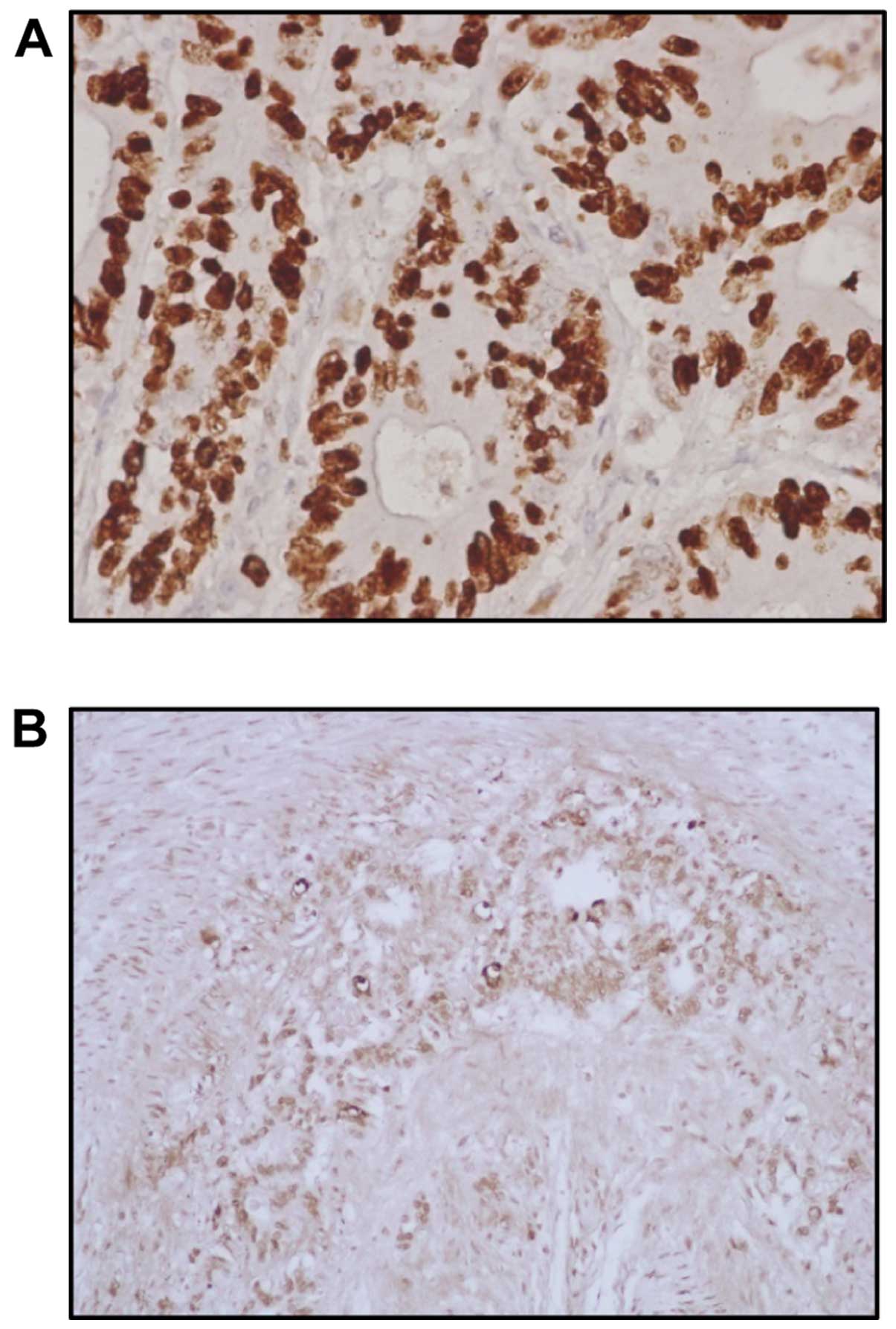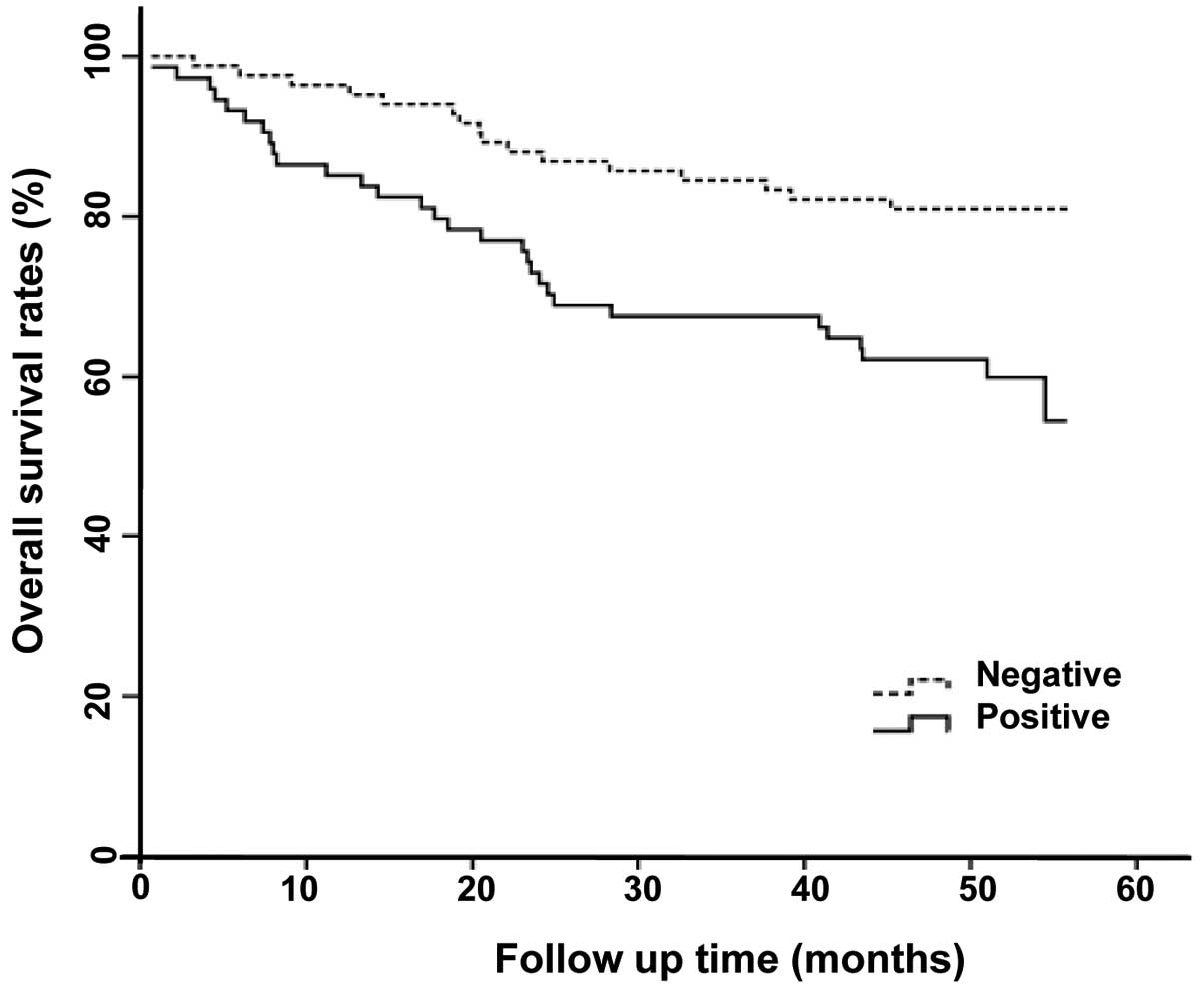|
1
|
Raff MC: Social controls on cell survival
and cell death. Nature. 356:397–400. 1992. View Article : Google Scholar : PubMed/NCBI
|
|
2
|
DeBerardinis RJ, Lum JJ, Hatzivassiliou G
and Thompson CB: The biology of cancer: metabolic reprogramming
fuels cell growth and proliferation. Cell Metab. 7:11– 20. 2008.
View Article : Google Scholar : PubMed/NCBI
|
|
3
|
Schultz DR and Harrington WJ Jr:
Apoptosis: programmed cell death at a molecular level. Semin
Arthritis Rheum. 32:345–369. 2003. View Article : Google Scholar : PubMed/NCBI
|
|
4
|
Thompson CB: Apoptosis in the pathogenesis
and treatment of disease. Science. 267:1456–1462. 1995. View Article : Google Scholar : PubMed/NCBI
|
|
5
|
Kiechle FL and Zhang X: Apoptosis:
biochemical aspects and clinical implications. Clin Chim Acta.
326:27–45. 2002. View Article : Google Scholar : PubMed/NCBI
|
|
6
|
Milbrandt J: A nerve growth factor-induced
gene encodes a possible transcriptional regulatory factor. Science.
238:797–799. 1987. View Article : Google Scholar : PubMed/NCBI
|
|
7
|
Gashler A and Sukhatme VP: Early growth
response protein 1 (Egr-1): prototype of a zinc-finger family of
transcription factors. Prog Nucleic Acid Res Mol Biol. 50:191–224.
1995. View Article : Google Scholar : PubMed/NCBI
|
|
8
|
Fahmy RG and Khachigian LM: Antisense
Egr-1 RNA driven by the CMV promoter is an inhibitor of vascular
smooth muscle cell proliferation and regrowth after injury. J Cell
Biochem. 84:575–582. 2002. View Article : Google Scholar : PubMed/NCBI
|
|
9
|
Rupprecht HD, Hoffer G, de Heer E, Sterzel
RB, Faller G and Schoecklmann HO: Expression of the transcriptional
regulator Egr-1 in experimental glomerulonephritis: requirement for
mesangial cell proliferation. Kidney Int. 51:694–702. 1997.
View Article : Google Scholar
|
|
10
|
Yan SF, Fujita T, Lu J, et al: Egr-1, a
master switch coordinating upregulation of divergent gene families
underlying ischemic stress. Nat Med. 6:1355–1361. 2000. View Article : Google Scholar : PubMed/NCBI
|
|
11
|
O’Donovan KJ, Tourtellotte WG, Millbrandt
J and Baraban JM: The EGR family of transcription-regulatory
factors: progress at the interface of molecular and systems
neuroscience. Trends Neurosci. 22:167–173. 1999.PubMed/NCBI
|
|
12
|
Lemaire P, Revelant O, Bravo R and Charnay
P: Two mouse genes encoding potential transcription factors with
identical DNA-binding domains are activated by growth factors in
cultured cells. Proc Natl Acad Sci USA. 85:4691–4695. 1988.
View Article : Google Scholar
|
|
13
|
Liu C, Yao J, de Belle I, Huang RP,
Adamson E and Mercola D: The transcription factor EGR-1 suppresses
transformation of human fibrosarcoma HT1080 cells by coordinated
induction of transforming growth factor-β1, fibronectin, and
plasminogen activator inhibitor-1. J Biol Chem. 274:4400–4411.
1999.PubMed/NCBI
|
|
14
|
Liu C, Yao J, Mercola D and Adamson E: The
transcription factor EGR-1 directly transactivates the fibronectin
gene and enhances attachment of human glioblastoma cell line U251.
J Biol Chem. 275:20315–20323. 2000. View Article : Google Scholar : PubMed/NCBI
|
|
15
|
Shareef MM, Cui N, Burikhanov R, et al:
Role of tumor necrosis factor-α and TRAIL in high-dose
radiation-induced bystander signaling in lung adenocarcinoma.
Cancer Res. 67:11811–11820. 2007.
|
|
16
|
Huang RP, Fan Y, de Belle I, et al:
Decreased Egr-1 expression in human, mouse and rat mammary cells
and tissues correlates with tumor formation. Int J Cancer.
72:102–109. 1997. View Article : Google Scholar : PubMed/NCBI
|
|
17
|
Gitenay D and Baron VT: Is EGR1 a
potential target for prostate cancer therapy? Future Oncol.
5:993–1003. 2009. View Article : Google Scholar : PubMed/NCBI
|
|
18
|
Riggs PK, Rho O and DiGiovanni J:
Alteration of Egr-1 mRNA during multistage carcinogenesis in mouse
skin. Mol Carcinog. 27:247–251. 2000. View Article : Google Scholar : PubMed/NCBI
|
|
19
|
Scharnhorst V, Menke AL, Attema J, et al:
EGR-1 enhances tumor growth and modulates the effect of the Wilms’
tumor 1 gene products on tumorigenicity. Oncogene. 19:791–800.
2000.PubMed/NCBI
|
|
20
|
Eid MA, Kumar MV, Iczkowski KA, Bostwick
DG and Tindall DJ: Expression of early growth response genes in
human prostate cancer. Cancer Res. 58:2461–2468. 1998.PubMed/NCBI
|
|
21
|
Arimochi H, Morita K, Kataoka K, Nakanishi
S, Kuwahara T and Ohnishi Y: Suppressive effect of Clostridium
perfringens-produced heat-stable substance(s) on proliferation
of human colon adenocarcinoma HT29 cells in culture. Cancer Lett.
241:228–234. 2006.
|
|
22
|
Chen A, Xu J and Johnson AC: Curcumin
inhibits human colon cancer cell growth by suppressing gene
expression of epidermal growth factor receptor through reducing the
activity of the transcription factor Egr-1. Oncogene. 25:278–287.
2006.
|
|
23
|
Mahalingam D, Natoni A, Keane M, Samali A
and Szegezdi E: Early growth response-1 is a regulator of
DR5-induced apoptosis in colon cancer cells. Br J Cancer.
102:754–764. 2010. View Article : Google Scholar : PubMed/NCBI
|
|
24
|
Edge SB, Byrd DR, Compton CC, Fritz AG,
Greene FL and Trotti A: AJCC Cancer Staging Manual. 7th edition.
Springer; New York: pp. 143–163. 2010
|
|
25
|
Gavrieli Y, Sherman Y and Ben-Sasson SA:
Identification of programmed cell death in situ via specific
labeling of nuclear DNA fragmentation. J Cell Biol. 119:493–501.
1992. View Article : Google Scholar : PubMed/NCBI
|
|
26
|
Kobayashi D, Yamada M, Kamagata C, et al:
Overexpression of early growth response-1 as a
metastasis-regulatory factor in gastric cancer. Anticancer Res.
22:3963–3970. 2002.PubMed/NCBI
|
|
27
|
Zheng L, Pu J, Jiang G, et al: Abnormal
expression of early growth response 1 in gastric cancer:
association with tumor invasion, metastasis and heparanase
transcription. Pathol Int. 60:268–277. 2010. View Article : Google Scholar
|
|
28
|
McCormick D, Chong H, Hobbs C, Datta C and
Hall PA: Detection of the Ki-67 antigen in fixed and wax-embedded
sections with the monoclonal antibody MIB1. Histopathology.
22:355–360. 1993. View Article : Google Scholar
|
|
29
|
Weidner N, Moore DH II and Vartanian R:
Correlation of Ki-67 antigen expression with mitotic figure index
and tumor grade in breast carcinomas using the novel
‘paraffin’-reactive MIB1 antibody. Hum Pathol. 25:337–342.
1994.PubMed/NCBI
|
|
30
|
Oka S, Uramoto H, Shimokawa H, Iwanami T
and Tanaka F: The expression of Ki-67, but not proliferating cell
nuclear antigen, predicts poor disease free survival in patients
with adenocarcinoma of the lung. Anticancer Res. 31:4277–4282.
2011.PubMed/NCBI
|
|
31
|
He WL, Li YH, Yang DJ, et al: Combined
evaluation of centromere protein H and Ki-67 as prognostic
biomarker for patients with gastric carcinoma. Eur J Surg Oncol.
39:141–149. 2013. View Article : Google Scholar : PubMed/NCBI
|
|
32
|
Hilska M, Collan YU, O Laine VJ, et al:
The significance of tumor markers for proliferation and apoptosis
in predicting survival in colorectal cancer. Dis Colon Rectum.
48:2197–2208. 2005. View Article : Google Scholar : PubMed/NCBI
|
|
33
|
Sun T, Tian H, Feng YG, Zhu YQ and Zhang
WQ: Egr-1 promotes cell proliferation and invasion by increasing
β-catenin expression in gastric cancer. Dig Dis Sci. 58:423–430.
2013.PubMed/NCBI
|
|
34
|
Kyrylkova K, Kyryachenko S, Leid M and
Kioussi C: Detection of apoptosis by TUNEL assay. Methods Mol Biol.
887:41–47. 2012. View Article : Google Scholar : PubMed/NCBI
|
|
35
|
Lifshitz S, Lamprecht SA, Benharroch D,
Prinsloo I, Polak-Charcon S and Schwartz B: Apoptosis (programmed
cell death) in colonic cells: from normal to transformed stage.
Cancer Lett. 163:229–238. 2001. View Article : Google Scholar : PubMed/NCBI
|
|
36
|
Sezer C, Yildirim M, Yildiz M, et al:
Prognostic significance of biological apoptosis factors in gastric
cancer. J BUON. 18:138–146. 2013.PubMed/NCBI
|
|
37
|
Hernandez JM, Farma JM, Coppola D, et al:
Expression of the antiapoptotic protein survivin in colon cancer.
Clin Colorectal Cancer. 10:188–193. 2011. View Article : Google Scholar : PubMed/NCBI
|
|
38
|
Theodoropoulos GE, Gazouli M, Vaiopoulou
A, et al: Polymorphisms of caspase 8 and caspase 9
gene and colorectal cancer susceptibility and prognosis. Int J
Colorectal Dis. 26:1113–1118. 2011.
|


















